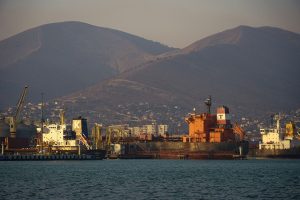The US-Brazil aircraft trade agreements have been a topic of discussion and negotiation for several years. These agreements aim to establish fair and balanced trade terms between the two countries, but they have faced numerous challenges and deadlocks along the way. This article explores the background of these trade agreements, the key issues involved, and the strategies that can be employed to resolve the financial deadlocks. The key takeaways from this article are as follows:
Key Takeaways
- Understanding the historical context of US-Brazil aircraft trade is crucial for comprehending the current challenges.
- Tariffs and trade barriers are significant obstacles that need to be addressed to facilitate smooth trade relations.
- Protecting intellectual property rights is essential for fostering innovation and preventing unfair competition.
- Government subsidies and support can distort the market and create an uneven playing field for aircraft manufacturers.
- Negotiating fair and balanced trade terms, enhancing cooperation and communication, and utilizing international trade organizations can help resolve financial deadlocks in US-Brazil aircraft trade agreements.
Background of US-Brazil Aircraft Trade Agreements
Overview of US-Brazil Aircraft Trade Relations
US-Brazil aircraft trade relations have been marked by various challenges and complexities. Tariffs and trade barriers, intellectual property rights, and government subsidies and support are key issues that have created financial deadlocks between the two countries. These deadlocks have hindered the growth of the aircraft trade industry and have led to disputes. Both countries need to find strategies to resolve these deadlocks and promote fair and balanced trade terms. Enhancing cooperation and communication and addressing disputes through international trade organizations are crucial steps towards finding a resolution.
Key Issues in US-Brazil Aircraft Trade
One of the key issues in US-Brazil Aircraft Trade is the presence of tariffs and trade barriers. These barriers hinder the smooth flow of trade between the two countries, making it difficult for aircraft manufacturers to compete effectively. Another important issue is the protection of intellectual property rights. Ensuring that intellectual property is respected and protected is crucial for fostering innovation and maintaining a fair playing field. Additionally, the issue of government subsidies and support poses challenges in trade agreements. Unfair subsidies can give certain companies an advantage, distorting competition and affecting the overall balance of trade. Addressing these issues is essential for establishing a fair and balanced aircraft trade relationship between the US and Brazil.
Historical Context of US-Brazil Aircraft Trade
The US-Brazil aircraft trade has a long history, dating back several decades. Both countries have been major players in the global aviation industry, with a strong presence in the production and export of aircraft. Over the years, the trade relationship between the US and Brazil has evolved, facing various challenges and opportunities. In the past, there have been instances of trade disputes and disagreements over tariffs and trade barriers. However, both countries have also recognized the importance of collaboration and have worked towards enhancing cooperation in the aviation sector. Today, the US-Brazil aircraft trade continues to be a significant aspect of the economic relationship between the two nations. Moving forward, it is crucial for both countries to address the financial deadlocks and find mutually beneficial solutions to ensure a fair and balanced trade environment.
Challenges in US-Brazil Aircraft Trade Agreements
Tariffs and Trade Barriers
Tariffs and trade barriers are major obstacles in US-Brazil aircraft trade agreements. These barriers, such as import duties and quotas, restrict the flow of aircraft and related products between the two countries. Negotiating fair and balanced trade terms is crucial to overcome these challenges. Additionally, both countries need to enhance cooperation and communication to find common ground and address the issues. In case of disputes, utilizing international trade organizations can provide a platform for resolution. However, resolving financial deadlocks requires a comprehensive approach that considers the complex dynamics of the aviation industry and the broader economic relationship between the US and Brazil. It is important to find solutions that promote fair competition while protecting the interests of both parties.
Intellectual Property Rights
Protecting intellectual property rights is a crucial aspect of US-Brazil aircraft trade agreements. Both countries recognize the importance of safeguarding innovations and creations in the aviation industry. This includes patents, trademarks, and copyrights related to aircraft design, technology, and branding. The enforcement of intellectual property rights ensures fair competition and encourages innovation. However, challenges arise in ensuring competitive rates for licensing and royalties. Negotiations must address these concerns to foster a balanced and mutually beneficial trade environment.
Government Subsidies and Support
Government subsidies and support play a significant role in US-Brazil aircraft trade agreements. Both countries provide financial assistance to their respective aircraft industries, which can create imbalances in the trade relationship. These subsidies can lead to unfair competition and hinder market access for certain products. To address this issue, it is crucial for both the US and Brazil to engage in transparent discussions and establish clear guidelines on the use of subsidies. Additionally, the involvement of international trade organizations can help mediate disputes and ensure a level playing field for all parties involved. By addressing the issue of government subsidies and support, the US and Brazil can work towards a more equitable and sustainable aircraft trade agreement.
Strategies for Resolving Financial Deadlocks
Negotiating Fair and Balanced Trade Terms
In order to resolve financial deadlocks in US-Brazil aircraft trade agreements, it is crucial to prioritize fair and balanced trade terms. This involves ensuring that both parties have equal opportunities and benefits in the trade relationship. Additionally, it is important to address any trade imbalances or unfair practices that may hinder the progress of the agreements. By negotiating fair and balanced trade terms, both the US and Brazil can create a more sustainable and mutually beneficial aircraft trade relationship.
To achieve this, it is necessary to establish clear guidelines and regulations that promote transparency and accountability. This can be done through the implementation of a comprehensive framework that addresses tariff reductions, intellectual property rights protection, and government subsidies. By doing so, both countries can foster an environment that encourages fair competition and innovation.
Furthermore, enhancing cooperation and communication between the US and Brazil is essential. Regular dialogues and information sharing can help build trust and understanding, which are vital for resolving financial deadlocks. By maintaining open lines of communication, both parties can work together to address any issues that may arise and find mutually agreeable solutions.
In cases where disputes cannot be resolved through bilateral negotiations, it is important to utilize international trade organizations such as the World Trade Organization (WTO) or the International Chamber of Commerce (ICC). These organizations provide a platform for impartial mediation and arbitration, ensuring that disputes are resolved in a fair and unbiased manner. By seeking recourse through these organizations, both the US and Brazil can ensure that their interests are protected and that any financial deadlocks are effectively resolved.
Enhancing Cooperation and Communication
To overcome financial deadlocks in US-Brazil aircraft trade agreements, enhancing cooperation and communication is crucial. By fostering open lines of communication and promoting collaboration between the two countries, potential issues can be addressed in a timely manner. This can help in resolving disputes and finding mutually beneficial solutions. Additionally, establishing mechanisms for regular dialogue and information sharing can facilitate the exchange of ideas and promote transparency. By improving cooperation and communication, both the US and Brazil can work towards creating a more conducive environment for trade.
Addressing Disputes through International Trade Organizations
To resolve disputes in US-Brazil aircraft trade agreements, international trade organizations play a crucial role. These organizations provide a platform for dialogue and negotiation, helping to find common ground and reach mutually beneficial solutions. One such organization is the World Trade Organization (WTO), which oversees trade disputes and enforces international trade rules. Through the WTO’s dispute settlement mechanism, countries can address issues such as tariffs, intellectual property rights, and government subsidies. This ensures a fair and transparent process for resolving conflicts and promoting a level playing field in the aircraft trade industry.
In addition, trade organizations like the International Chamber of Commerce (ICC) facilitate arbitration and mediation between parties involved in trade disputes. They offer expertise in resolving complex financial issues, including steel debt recovery in USA-Brazil. By leveraging the expertise and resources of these international trade organizations, the US and Brazil can navigate financial deadlocks and establish a more stable and prosperous aircraft trade relationship.
| International Trade Organizations |
|---|
| World Trade Organization |
| International Chamber of Commerce |
- Key role in resolving disputes
- Enforce international trade rules
- Facilitate arbitration and mediation
- Expertise in steel debt recovery in USA-Brazil
Resolving financial deadlocks in US-Brazil aircraft trade agreements requires the collaborative efforts of international trade organizations and the commitment of both nations to fair and balanced trade terms.
Are you facing financial deadlocks and struggling to find a way out? Look no further! Our website, No Recovery No Fee Debt Collections, offers effective strategies for resolving financial deadlocks. With our expertise in debt collection solutions, we provide simple and efficient methods to help you overcome your financial challenges. Don’t let your debts hold you back any longer. Visit our website today and discover how we can assist you in achieving financial freedom. Click here to learn more about our debt collection services.
Frequently Asked Questions
What is the current status of US-Brazil aircraft trade relations?
The current status of US-Brazil aircraft trade relations is complex. While there have been both positive and negative developments, the overall relationship remains uncertain due to ongoing trade disputes and challenges.
What are the key issues in US-Brazil aircraft trade?
The key issues in US-Brazil aircraft trade include tariffs and trade barriers, intellectual property rights, and government subsidies and support. These factors often create financial deadlocks and hinder the progress of trade agreements.
How have historical factors influenced US-Brazil aircraft trade?
Historical factors have played a significant role in shaping US-Brazil aircraft trade. Past trade agreements, political dynamics, and economic conditions have all contributed to the current state of trade relations between the two countries.
What are the main challenges in resolving financial deadlocks in US-Brazil aircraft trade agreements?
The main challenges in resolving financial deadlocks in US-Brazil aircraft trade agreements include finding mutually acceptable trade terms, enhancing cooperation and communication between the two countries, and effectively addressing disputes through international trade organizations.
How can negotiating fair and balanced trade terms help resolve financial deadlocks?
Negotiating fair and balanced trade terms can help resolve financial deadlocks by ensuring that both parties have a level playing field and that trade benefits are distributed equitably. This can help build trust and facilitate the progress of trade agreements.
Why is enhancing cooperation and communication important in US-Brazil aircraft trade agreements?
Enhancing cooperation and communication is important in US-Brazil aircraft trade agreements as it promotes understanding, reduces misunderstandings, and facilitates the exchange of information and ideas. This can help overcome financial deadlocks and foster a more productive trade relationship.





